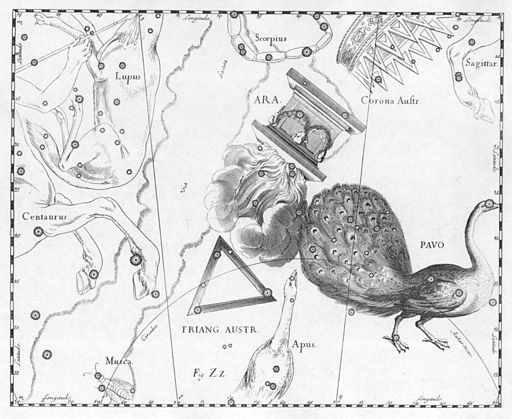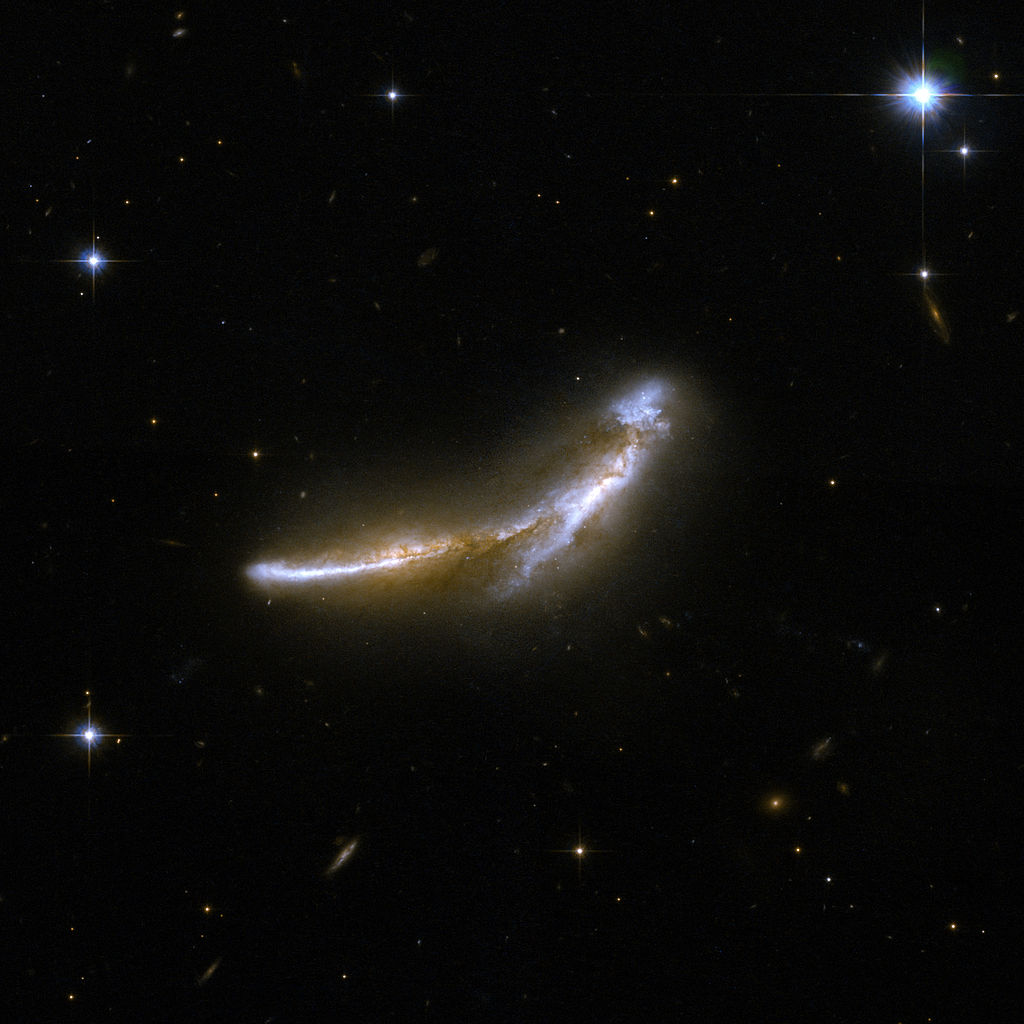
By IAU and Sky & Telescope magazine (Roger Sinnott & Rick Fienberg) [CC-BY-3.0], via Wikimedia Commons
"The Peacock"

By IAU and Sky & Telescope magazine (Roger Sinnott & Rick Fienberg) [CC-BY-3.0], via Wikimedia Commons
Abbreviation: Pav
Genitive: Pavonis
Constellation family: Bayer Group
Nearest constellations: Apus, Ara, Indus, Octans,
Telescopium
Right ascension: 19.68h
Declination: -66.13°
Visible between latitudes: +15° and -90°
Square degrees: 378
Luminary: Peacock (Alpha Pavo)
Named stars: Peacock
Notable deep sky objects: NGC 6744, NGC 6752, NGC 6782
Pavo is a constellation in the Southern Hemisphere that is best seen in September.
Pavo was originally named by Johann Bayer in 1603 when he published his star atlas Uranometria; it is one of twelve southern constellations that he introduced.
Some of the stars in Pavo form an asterism called "the Saucepan", which points toward the southern celestial pole and acts as a navigational tool.
The star Delta Pavonis has been the subject of significant scientific interest. Given its similarity and proximity to the Sun, it was classified as a top target for a couple of NASA programs that would have aimed to discover planets in orbit around host stars. In addition, the Search for Extraterrestrial Intelligence (SETI) Institute has described Delta Pavonis as one of its "best" targets.

By Johannes Hevelius, scanned by Torsten Bronger 2003 April 4 [Public domain], via Wikimedia Commons
However, the NASA programs (the Terrestrial Planet Finder and Space Interferometry Mission) were cancelled, and there have been no definite discoveries of planets around Delta Pavonis.
In Greek mythology, peacocks are associated with Hera, Zeus's wife and queen of the gods. Zeus had an affair with a woman named Io, and to protect her from Hera he turned her into a cow. Hera, however, discovered what Zeus did and had Argus Panoptes, a giant with 100 eyes, guard the cow.
Zeus sent Hermes to free Io from Argus Panoptes, and Hermes killed the giant by lulling him to sleep and getting him to close his 100 eyes. After his death, Hera placed Argus Panoptes' eyes on the tail feathers of her peacock. Io was left to roam, still in the body of a cow, and eventually made her way to Egypt.
NGC 6670 (interacting galaxies):

By NASA, ESA, the Hubble Heritage (STScI/AURA)-ESA/Hubble Collaboration, and A. Evans (University of Virginia, Charlottesville/NRAO/Stony Brook University) [Public domain], via Wikimedia Commons
IC 4662 (galaxy):

By NASA [Public domain], via Wikimedia Commons
NGC 6744 (spiral galaxy):

NGC 6752 (globular cluster):

By NASA, STScI, WikiSky (WikiSky's snapshot tool) [Public domain], via Wikimedia Commons
NGC 6782 (barred spiral galaxy):

By NASA and The Hubble Heritage Team (STScI/AURA) [Public domain], via Wikimedia Commons